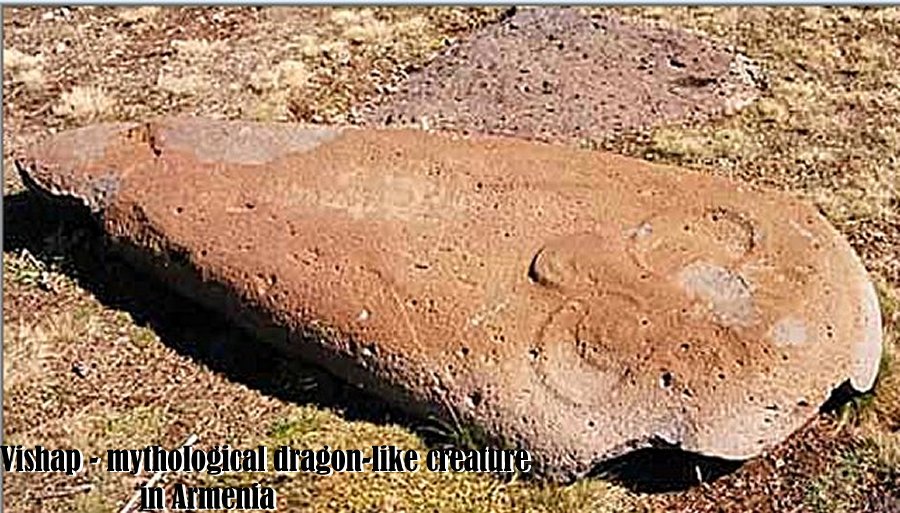Mysterious 2000-Year-Old Carved Vishap Stone Monuments Of Armenia
– Vishap stones represent one of the more interesting mysteries of Armenian archaeology.
Vishaps are menhirs (large carved stones) that date back to 2000 BC. These formations, which had once religious significance, are believed to be related to water.

Vishap means for the Armenians – ‘dragon’ and such stone has a dragon or serpent-shaped ‘head’ carved at the top.
Usually, the Armenian vishaps have cylindrical or cigar-shaped form and are grey in color. Their true ancient name is vishapakahr, derived from the Armenian word “vishap” meaning “serpent/dragon,” and “kahr” meaning “stone.”
They can be from 10 to 20 feet tall.
Sometimes, the most ancient vishaps are so weathered or altered by weather and time that inscriptions on them are difficult to decipher.
One of the vishaps can be found at Garni, an ancient village, which was once a settlement inhabited almost continuously since the 3000 BC. This vishap-formation is covered with a cuneiform inscription dated to 6th century. Later, crosses were added to some of the vishaps to make them more like Christian monuments.
Tracing distant past of the vishaps, scholars determined that they could have been the forerunners of stelae – tetragonal (with four sides) columns standing on a cube-shaped base and functioning as gravestones or memorial stones.
They often had carvings depicting religious subjects in form of saints, biblical scenes or angels.
People do not know where they originate from and how they ended up in Armenia. According to Armenian mythology vishaps are dragons, which live in the mountains, especially on Mount Ararat.
They have been found on the north-eastern shore of Lake Sevan (the largest body of water in Armenia and the Caucasus region) and are often in association with water engineering and construction of big and small artificial lakes and a complex system of canals joining them.
Today, almost all Vishap (Dragon) stones are devastated; they were intentionally knocked down.
Exact dating of these megaliths, presents certain difficulties. In the vicinity of these enigmatic ancient figures there are no remnants of ancient settlements, fires or other fossils, to which the radio carbon analysis could be applied.
Written by – A. Sutherland AncientPages.com Staff Writer
Copyright © AncientPages.com All rights reserved. This material may not be published, broadcast, rewritten or redistributed in whole or part without the express written permission of AncientPages.com



 Creators of mankind
Creators of mankind Description of “Tall white aliens”
Description of “Tall white aliens” Where they came from?
Where they came from? About hostile civilizations
About hostile civilizations The war for the Earth
The war for the Earth “Tall white aliens” about eternal life
“Tall white aliens” about eternal life Video: “Nordic aliens”
Video: “Nordic aliens” Aliens
Aliens Alien encounters
Alien encounters The aliens base
The aliens base UFO
UFO Technology UFO
Technology UFO Underground civilization
Underground civilization Ancient alien artifacts
Ancient alien artifacts Military and UFO
Military and UFO Mysteries and hypotheses
Mysteries and hypotheses Scientific facts
Scientific facts


















